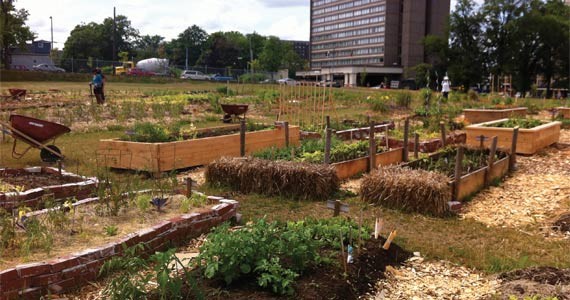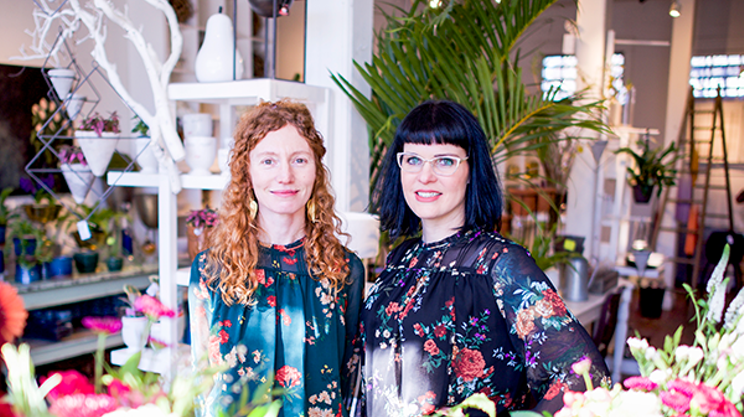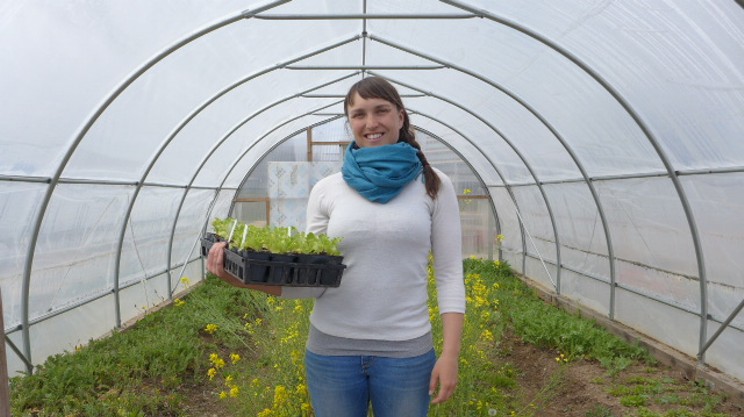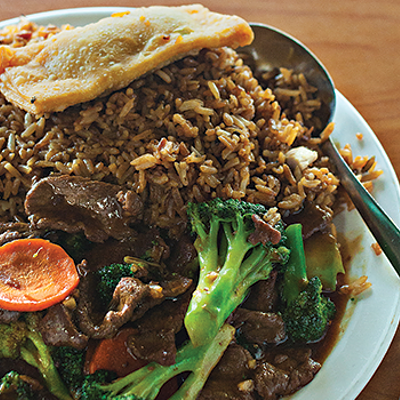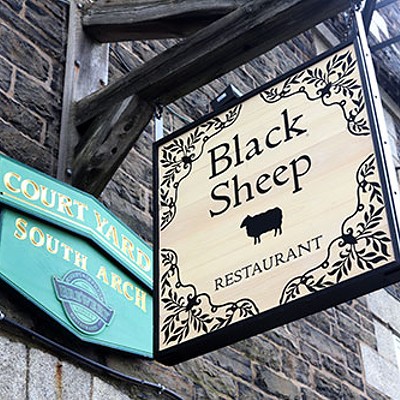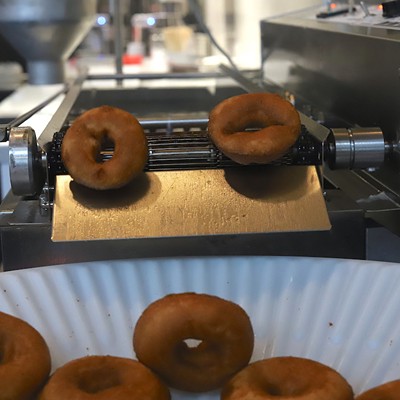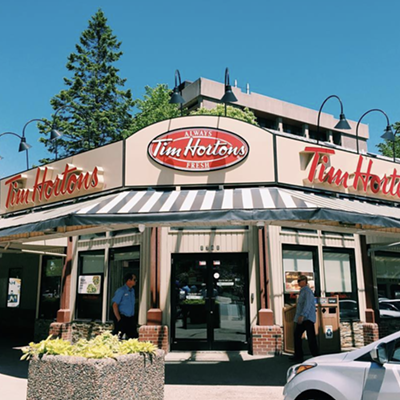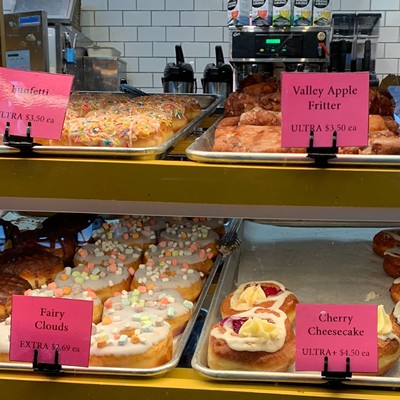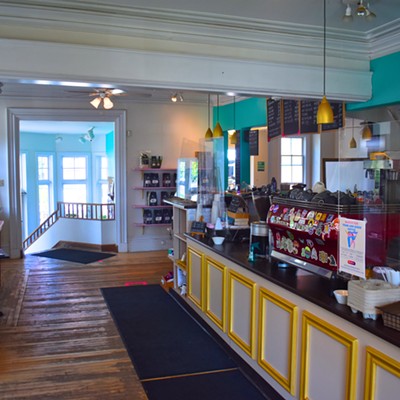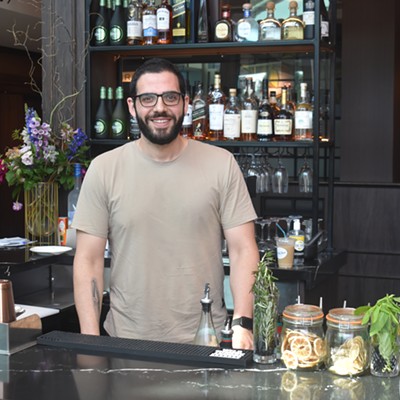Being on one of the city's busiest corners, what kind of response were you getting from passersby?
The vast majority of the city never got out of their cars, but on the other hand we've had I'd say thousands---hundreds for sure---of people coming through the site. In the height of the summer I would say there easily could be 10 to 15 people an hour coming through the gardens. It was really neat because it was a lot of Capital Health staff, patients and visitors. And then a lot of community members and day camps or service organizations, like preschools, adult mental health groups, church groups. It was really heavily used.
How many people were actually planting things at the farm?
There were 21 groups that had their own plots and then we had a big collective garden too that produced, I'd say, close to 200 pounds of food. It tastes good, it tastes better than any supermarket stuff you get.
Why is access to community farm important to a city like Halifax?
There are a number of reasons.One is capability: knowing how to build something, or grow food, adds confidence in capability and some resilience. Gardening is great because gardeners always have things to give away, and its great when there are generous people all around us. And one of the major ones is food security. Nova Scotia produces 12 percent of its food right now and the average age of a farmer is 57 years old. We need more farmers. We need more young farmers. So, having the opportunity for young people to just consider being a farmer and explore the network of food things happening is really important. Then there are the conversations around healthy food, and preserving food, and other sustainability issues and environmental health---all of those conversations are really important for us to have right now and it's really important to have them in a place where we get to do active stewardship. All the of the talking can get us down. Having a site in the middle of the city where we actually get to take part in active stewardship is really important.
Also, it helps us remember that plants produce so much: our foods, our medicines, our fuel, our dye, our fibre. You can grow flowers, you can grow herbs, you can grow veggies, you can grow firewood, you can grow art supplies.
What's in the works for Common Roots' second season?
This year the community plots will be open to individuals as well as groups, and they'll be a quite number more of them. Actually, something really exciting is that Fiskers, the scissors company, has selected our site as an Orange Thumb Makeover. They're going to hire a local designer to fulfill a little wish list and design quite a big area for us. And then on June 19---that'll be the big work party day---we're going to build this big piece of garden. That'll be quite a big, interesting expansion to the garden this year.
Will we continue to see this kind of growth in the future?
The site has always been a temporary land use because they are planning on doing all this expansion and development to the hospital and that site is part of that plan. I feel like this year we can expand out, we'll probably double our size and become a good acre, if not a bit more. So, we have three more years [the expansion is targeted for 2016] and I think that's fine and good. We can really do a lot of learning and sharing and planning for the future. We actually need one of these in every 'hood, so this gives us a few more years to build capacity on a individual, community and collective level---and identify other locations ---and then if the money is there for them to expand, we move.
Jayme Melrose, the HRM's resident Garden Doula, is the project coordinator at Common Roots. Dig in to what's up by finding it on Facebook.

